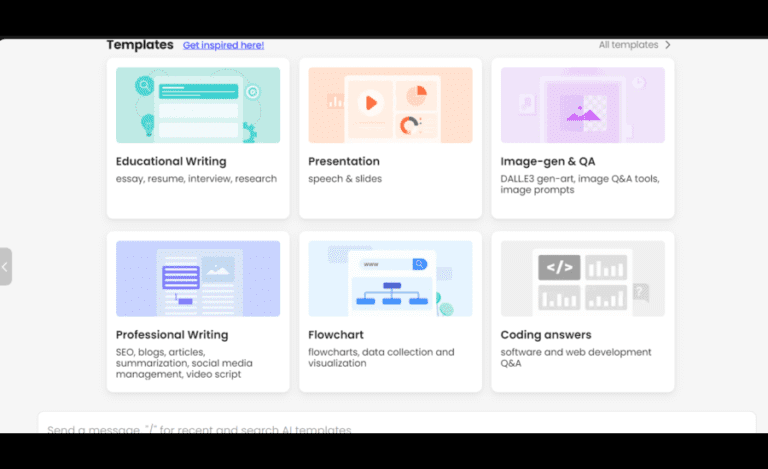Journalism Futures: Emerging Roles
The landscape of journalism is evolving at an unprecedented pace, driven by technological advancements, changing consumer habits, and the rise of new media platforms. As traditional journalism grapples with these changes,
new roles are emerging, transforming the field and offering exciting opportunities for aspiring journalists. This article explores the future of journalism and the emerging roles that are shaping the industry.
The Digital Transformation of Journalism
The digital revolution has fundamentally altered the way news is produced, distributed, and consumed. Traditional print media has been steadily declining,
with digital platforms taking the forefront. This shift has given rise to several emerging roles in journalism, each requiring a unique set of skills and expertise.
1. Data Journalists
Data journalism has emerged as a critical field, leveraging data to uncover stories that might otherwise go unnoticed. Data journalists use statistical tools, programming languages,
and visualization techniques to analyze large datasets and present their findings in an accessible format. They play a crucial role in investigative journalism, often revealing patterns and insights that can influence public opinion and policy.
Key Skills:
- Proficiency in data analysis tools (e.g., Excel, R, Python)
- Knowledge of data visualization software (e.g., Tableau, Infogram)
- Strong analytical and investigative skills
- Ability to translate complex data into compelling narratives
2. Multimedia Journalists
With the rise of digital media, multimedia journalism has become essential. Multimedia journalists are adept at using various forms of media, including text, audio, video,
and interactive graphics, to tell a story. They are often required to shoot and edit videos, record podcasts, and create engaging social media content, making them versatile storytellers.
Key Skills:
- Proficiency in video and audio editing software (e.g., Adobe Premiere, Audacity)
- Strong photography and videography skills
- Ability to create interactive and multimedia content
- Familiarity with social media platforms and trends
3. Engagement Editors
Engagement editors focus on building and maintaining a strong relationship between news organizations and their audiences. They use social media, newsletters, and community forums to engage with readers, gather feedback,
and promote content. Their goal is to foster a loyal audience base and increase reader interaction and participation.
Key Skills:
- Expertise in social media management and analytics
- Excellent communication and interpersonal skills
- Ability to create and manage community engagement strategies
- Proficiency in using audience engagement tools (e.g., Hootsuite, Buffer)
4. AI and Automation Specialists
Artificial Intelligence (AI) and automation are revolutionizing journalism by enabling faster and more efficient news production. AI specialists in journalism develop and maintain algorithms that can generate news reports,
analyze trends, and personalize content for readers. Automation helps newsrooms handle routine tasks, freeing up journalists to focus on more in-depth reporting.
Key Skills:
- Knowledge of AI and machine learning algorithms
- Proficiency in programming languages (e.g., Python, Java)
- Understanding of natural language processing (NLP)
- Ability to integrate AI tools into newsroom workflows
5. Solutions Journalists
Solutions journalism focuses on reporting on responses to social issues rather than just the problems themselves. Solutions journalists investigate how various communities, organizations, and individuals are addressing challenges, providing a balanced view that includes potential solutions and their effectiveness.
Key Skills:
- Strong investigative and research skills
- Ability to identify and evaluate solutions to social issues
- Proficiency in writing compelling and balanced stories
- Understanding of impact journalism principles
6. Virtual Reality (VR) and Augmented Reality (AR) Journalists
VR and AR are opening new frontiers in immersive storytelling. Journalists in this field create virtual experiences that allow audiences to explore news stories in a highly engaging and interactive manner. This type of journalism is particularly effective in covering complex topics that benefit from visual and experiential understanding.
Key Skills:
- Proficiency in VR/AR development tools (e.g., Unity, Unreal Engine)
- Strong storytelling and creative skills
- Ability to create immersive and interactive experiences
- Understanding of user experience (UX) design principles
7. Podcast Producers
The popularity of podcasts has surged in recent years, making podcast production a vital role in modern journalism. Podcast producers are responsible for conceptualizing, recording, editing, and distributing audio content. They often work closely with hosts and guests to create compelling and informative episodes.
Key Skills:
- Proficiency in audio recording and editing software (e.g., Pro Tools, Audacity)
- Strong storytelling and interviewing skills
- Ability to manage the production process from start to finish
- Knowledge of podcast distribution platforms and strategies
Adapting to the Future
As the journalism industry continues to evolve, adaptability and continuous learning will be key for aspiring journalists. Embracing new technologies, developing a diverse skill set,
and staying informed about industry trends will be essential for success in these emerging roles. The future of journalism is dynamic and promising, offering numerous opportunities for those willing to innovate and adapt.
Conclusion
The future of journalism is being shaped by digital transformation, new media platforms, and technological advancements. Emerging roles such as data journalists, multimedia journalists, engagement editors,
AI and automation specialists, solutions journalists, VR and AR journalists, and podcast producers are redefining the industry. By embracing these changes and continuously developing their skills, aspiring journalists can thrive in this exciting and evolving field.




